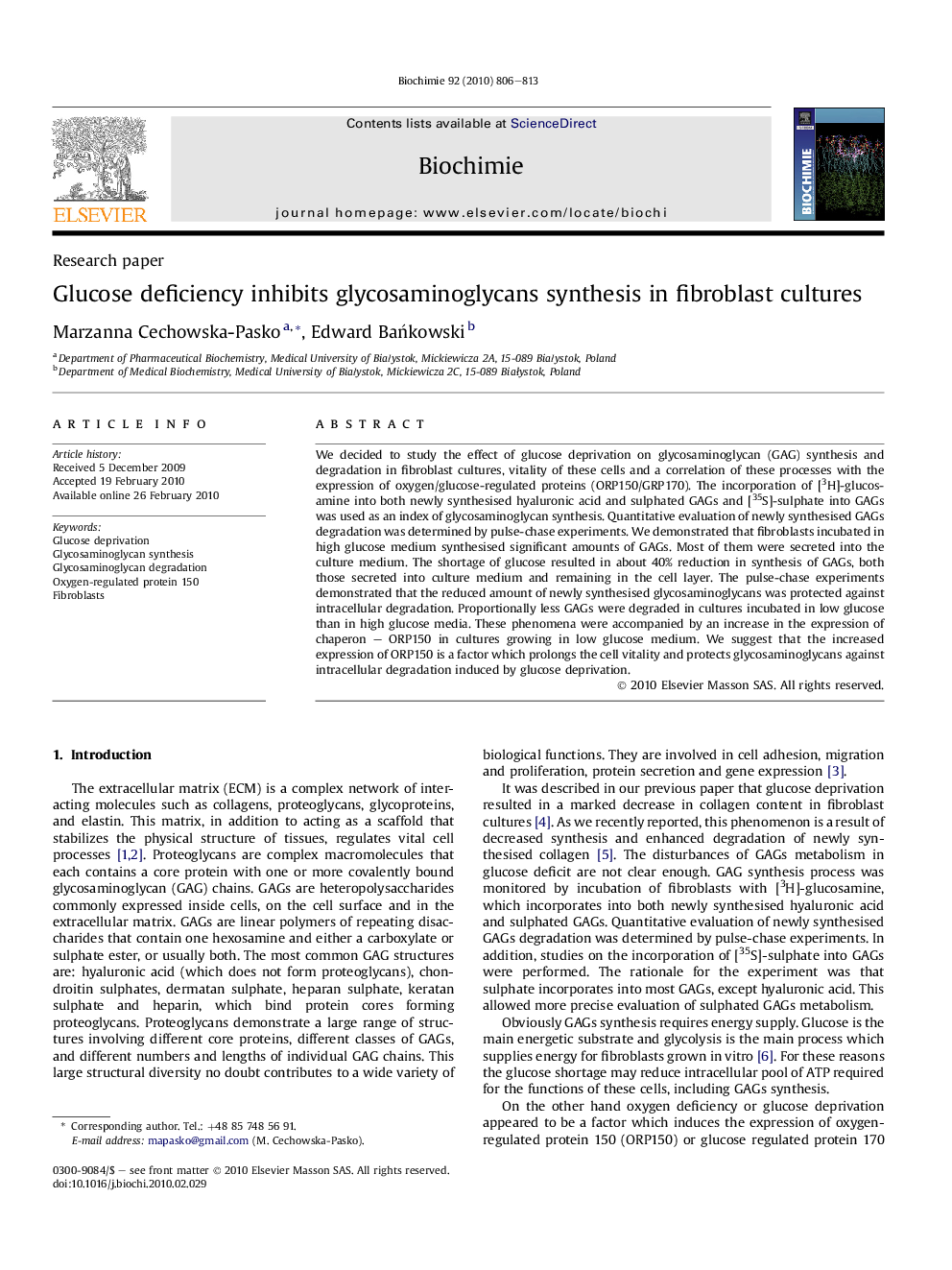| Article ID | Journal | Published Year | Pages | File Type |
|---|---|---|---|---|
| 1952755 | Biochimie | 2010 | 8 Pages |
We decided to study the effect of glucose deprivation on glycosaminoglycan (GAG) synthesis and degradation in fibroblast cultures, vitality of these cells and a correlation of these processes with the expression of oxygen/glucose-regulated proteins (ORP150/GRP170). The incorporation of [3H]-glucosamine into both newly synthesised hyaluronic acid and sulphated GAGs and [35S]-sulphate into GAGs was used as an index of glycosaminoglycan synthesis. Quantitative evaluation of newly synthesised GAGs degradation was determined by pulse-chase experiments. We demonstrated that fibroblasts incubated in high glucose medium synthesised significant amounts of GAGs. Most of them were secreted into the culture medium. The shortage of glucose resulted in about 40% reduction in synthesis of GAGs, both those secreted into culture medium and remaining in the cell layer. The pulse-chase experiments demonstrated that the reduced amount of newly synthesised glycosaminoglycans was protected against intracellular degradation. Proportionally less GAGs were degraded in cultures incubated in low glucose than in high glucose media. These phenomena were accompanied by an increase in the expression of chaperon – ORP150 in cultures growing in low glucose medium. We suggest that the increased expression of ORP150 is a factor which prolongs the cell vitality and protects glycosaminoglycans against intracellular degradation induced by glucose deprivation.
